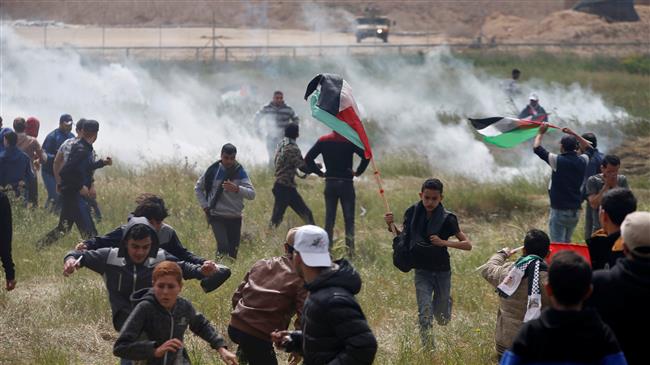
RNA - Although this requires a United Nations inquiry, there won’t be any investigation, because the United States says so. As always, the US vetoed a resolution in the UN Security Council which sought to call for such an inquiry, and also issuing a statement of support for the right to peaceful protest. This is unsurprising, as the US generally vetoes anything that has anything to do with Israel, even if vetoing a call to respect human rights, and not kill peaceful protesters, is something of an embarrassment.
The question then arises as to why a relationship which has a history of international criticism and embarrassment appears to have become an intrinsic and unconditional one.
What seems most of all to paralyze thinking on the matter of support to Israel, even when the latter's policies contribute to local and regional instability, tension, violence and human rights violations is paradoxically the fact that there is an institutionalised security arrangement between them. There is overt alliance, with written clauses, plus a good many secret agreements, particularly regarding the disposition and use of force and weaponry (notably nuclear bombs) in the event of war. The reasons for such ties, similar to those which link the US to its Arab allies all over the Middle East, are numerous.
Just like what happened in Gaza and in the Security Council this week, the US permits Israel to get away with excesses such as crimes against humanity which would be impossible in the framework of a well-delineated and normal relationship.
The widespread use by the Israeli military of forbidden weapons (such as fragmentation bombs) supplied by the United States, in the last Lebanon war of 2006 could be, and duly was, backed by the US, both diplomatically at the UN and militarily. In other words, there are not the means available to deter and to respond to objectionable behavior. Just this week the pattern repeated itself with regard to the Land Day protests along the Gaza border.
Because of a connection to which no formal limits have been set, Israel did act there as though there were no limits at all. Nor did the US and the rest of the Security Council members join temporary coalitions together, such as finding a way to end the Israeli attacks on the peaceful Land Day protesters. This likewise left Israel in a sense free to act unilaterally, confident of US support and veto. And that places the stability of the region at risk, something that has become a trait of the usurper regime.
According to Fars News Agency, these institutionalized commitments are spearheading the latest escalation with Gazans. This is of course dearly a considerable understatement of the situation, as the US also wants to move its embassy to Jerusalem Al-Quds, long considered as the future capital of Palestine. Opinion in the US is mobilized for this. No matter that the UN and the world community has condemned this dangerous move, but it is unwilling to do anything about it, anything serious.
This leaves both the US and Israel with the illusion of greater freedom, to act unilaterally and to push their common goals forward without limits. Alliances tend nowadays to be defensive ones. This is true of Iran and Russia in Syria, just as it is of Iran in Iraq in the war against terrorism. Perhaps the reason why the relationship between the US and Israel will not be institutionalized for defensive purposes is that its nature is not not at all defensive.
At any rate, this is one of the reasons why the US-Israel relationship’s manifestations and potentials are so destabilizing, so unlimited, and so disconcerting. This is true even though the intensity of the relationship, as the US just demonstrated at the Security Council this week, has no end. This is probably precisely the reason why Israel is not worried about killing the Land Day protesters in broad daylight and in clear violation of International Human Rights Law and the UN Charter.
847/940